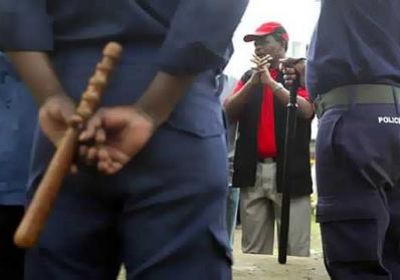
The deputy president of Swaziland’s People’s United Democratic Movement (Pudemo) Sikhumbuzo Phakathi was arrested on September 6 at the Phongola border post.
The arrest came as Swazi police and soldiers were deporting a delegation of South African activists from the Congress of South African Trade Unions (COSATU) and the Swaziland Democracy Campaign (SDC).
Pudemo president Mario Masuku was detained before the start of a protest march on September 7 to mark the global day for democracy in Swaziland. He was “escorted home” by police to prevent his participation.